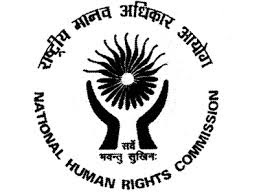 The National Human Rights Commission is a statutory body in India which came into existence through the Protection of Human Rights Act, 1993 and came into force in 1994.
The National Human Rights Commission is a statutory body in India which came into existence through the Protection of Human Rights Act, 1993 and came into force in 1994.
The protection of Human Rights Act, 1993 provides for setting up the National Human Rights Commission at the center as well as one commission each at the state level.
COMPOSITION OF NHRC
National Human Rights Commission consists of a chairman and four members, all of them being full-time members.
Apart from there full-time members, the commission also has its deemed members as the chairpersons of the National Commission for minorities, the National Commission for SCs and STs and the National Commission for women.
The multi-membership is intended to reinforce the independence and impartiality of the commission of the five members including the chairperson, three are to possess the high-level judicial background and the remaining must have knowledge of or practical experience in matters relating to Human Rights.
The Chairman of NHRC must be a former Chief Justice of India. [According to new information, in future, any Judge of Supreme Court can become Chairman of NHRC.]
Chairperson – Justice H L Dattu
Members – Justice Pinaki Chandra Ghose, Justice D. Murugesan, Sharad Chandra Sinha, Jyotika Kalra.
Ex-officio-Members – Chairman, National Minorities Commission Chairman, National Commission for Women, Chairman, National Commission for SCs & STs.
The National Human Rights Commission is designed to protect human rights, defined as rights relating to life, liberty, equality and dignity of the individual guaranteed by the constitution or embodied in the International Covenant and which are enforceable by the Courts in India.
Must Read: Rights Issue
Functioning of NHRC
- NHRC can intervene in any legal proceedings involving an allegation of violation of Human Rights.
- It can visit, with the prior approval of the State Government, any jail to study the living conditions of
- the inmates and make recommendations.
- It can review the safeguards provided by or under the constitution or any law for the protection of
- Human Rights and recommend measures for their effective implementation.
- The Commission also reviews the factors including acts of terrorism, that inhibit the enjoyment of Human
- Rights and recommends remedial measures.
- NHRC also undertakes and promotes research in the field of Human Rights.
- If encourages the NGOs working in the field of Human Rights.
Autonomy of the NHRC
- Appointment of its numbers for a fixed tenure.
- The Chairperson and the members are of the commission are appointed by the president on the basis of recommendations of a committee comprising the Prime Minister as the Chairperson, the Speaker of the Lok Sabha, the Home Minister, the leader of the opposition in the Lok Sabha and Rajya Sabha and the Deputy Chairperson of the Rajya Sabha as members.
Read Also:


Very in4mative site. Hope it wil cntinue 4evr
NHRC ,nodoubt ,was initiated for a noble cause i.e. of protecting specific rights of a person but in the remote areas of a dense country like india,there should be an establishment of these commission wings for the betterment and upliftment of the rural and remotely situated population.
99%people do not know what is it & its area , power and how do they get help from NHRC
Thnx
NHRC .. WAY 2 PROTECT ALL MANKIND !!
NHRC failed to protect sadhviji pragya sing taakur .she is detained tortured without any charges at7 years.
Mr swami raj…..NHRC know about Sadhvi paragya singh thakur….that is they not protec the Thakur and Asimanand and Karnal Prohit and Sameer kulkarni etc……